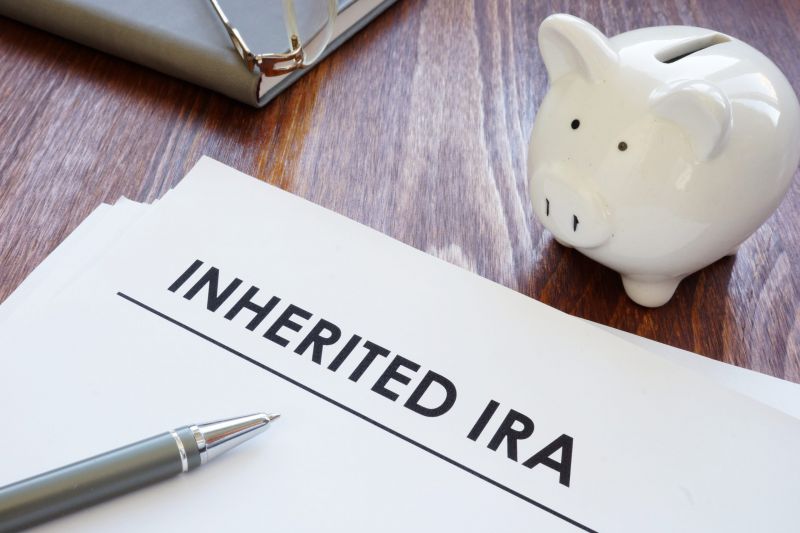- Ed Slott’s IRA Corner
- Avoiding Costly Mistakes as a Spousal Beneficiary
Avoiding Costly Mistakes as a Spousal Beneficiary

We’ve all heard the saying, “Nothing is certain except death and taxes.” But if you’re married, there will come a time when you or your spouse will have to navigate a difficult reality—losing a loved one and making critical financial decisions. Avoiding Costly Mistakes as a Spousal Beneficiary is critical.
One of surviving spouses’ most common yet costly mistakes is mishandling an inherited IRA. With recent updates to the IRS 2024 Required Minimum Distribution (RMD) regulations, it’s more important than ever to understand your options and avoid missteps that could lead to unnecessary taxes, penalties, or restricted access to your retirement savings.
If you’re inheriting an IRA from a deceased spouse, making an informed decision is essential.
Understanding Your Options as a Spouse Beneficiary (click here for a video summary)
A spouse beneficiary is someone who was married to the account owner at the time of their death and was either named on the IRA beneficiary form or inherited the account through default provisions. Unlike other beneficiaries, surviving spouses have unique options when it comes to handling an inherited IRA:
- Split the Inherited Account (If Necessary)
If you are the sole beneficiary of your spouse’s IRA, you can take advantage of special spousal provisions. However, if there are multiple beneficiaries named, you must transfer your portion into a separate account by December 31 of the year following the IRA owner’s death to access these benefits.
- Keep the Account as an Inherited IRA
One option is to keep the inherited IRA in its current form. If your spouse had not yet started taking RMDs, you can defer distributions until the year they would have turned 73. You’ll then use the Uniform Lifetime Table to calculate your required distributions, potentially reducing your taxable income.
- Transfer the Inherited IRA Into Your Own Name
If you’re a younger surviving spouse, keeping the inherited IRA until you reach age 59½ is often beneficial, as this allows you to withdraw funds without penalty. However, once you pass this milestone, rolling the funds into your own IRA is generally the best move, as it allows you to stretch distributions over your own life expectancy—a tax-efficient way to preserve wealth.
Many surviving spouses forget to update their beneficiary designations after inheriting an IRA. If you pass away without naming new beneficiaries, the remaining assets may be subject to probate. Additionally they could be forced into a shorter payout period, reducing their financial benefits for your heirs. Naming beneficiaries ensures your loved ones can access the IRA in the most tax-efficient way possible.
- Consider a Disclaimer
In some cases, disclaiming part (or all) of the inherited IRA may be the best decision. A qualified disclaimer allows assets to pass to contingent beneficiaries—such as children—without triggering tax liabilities for you. If structured properly, this strategy can optimize the long-term financial well-being of your family.
The Importance of Getting Expert Guidance
Handling an inherited IRA isn’t always straightforward, and mistakes can be costly. The wrong decision could lead to:
- Unnecessary taxes and penalties
- Lost opportunities for tax-deferred growth
- Complications for your heirs
At RFG Wealth Advisory in Argyle, Texas, we help surviving spouses make the best financial decisions for their future. We’re an independent Registered Investment Advisor who always put our client’s interests first. We have a transparent fee structure that’s easy to understand for your peace of mind.
Financial Success Doesn’t Happen by Chance
Let’s make sure your financial plan is aligned with the latest tax laws and regulations and your financial goals.
📞 Call lead advisor Chris Robinson, ChFC, at 940-464-4104 to discuss your inherited IRA options. You can also schedule a free virtual consultation online.
📩 For a step-by-step free guide to avoiding costly spousal beneficiary mistakes, download “Avoiding Spousal Beneficiary Mistakes in 5 Easy Steps” below.
Financial success doesn’t happen by chance—let’s plan for your financial future today.
Related Posts
“These materials have been independently produced by RFG Wealth Advisory. RFG Wealth Advisory is independent of, and has no affiliation with, Charles Schwab & Co., Inc. or any of its affiliates (“Schwab”). Schwab is a registered broker-dealer and member SIPC. Schwab has not created, supplied, licensed, endorsed, or otherwise sanctioned these materials nor has Schwab independently verified any of the information in them. RFG Wealth Advisory provides you with investment advice, while Schwab maintains custody of your assets in a brokerage account and will effect transactions for your account on our instruction.”
RFG Wealth Advisory is a registered investment adviser with the U.S. Securities and Exchange Commission (SEC). Registration does not imply a certain level of skill or training, nor is it an endorsement by the SEC or other regulators. RFG Wealth Advisory only provides investment advisory services in jurisdictions where it is registered or qualifies for an exemption. This website is for informational purposes only and does not constitute legal, tax, or accounting advice. For more information, see our Form ADV and Form CRS, available at the bottom of this page.
RFG Wealth Advisory
130 Old Town Blvd., S, Ste. 100
Argyle, TX 76226





